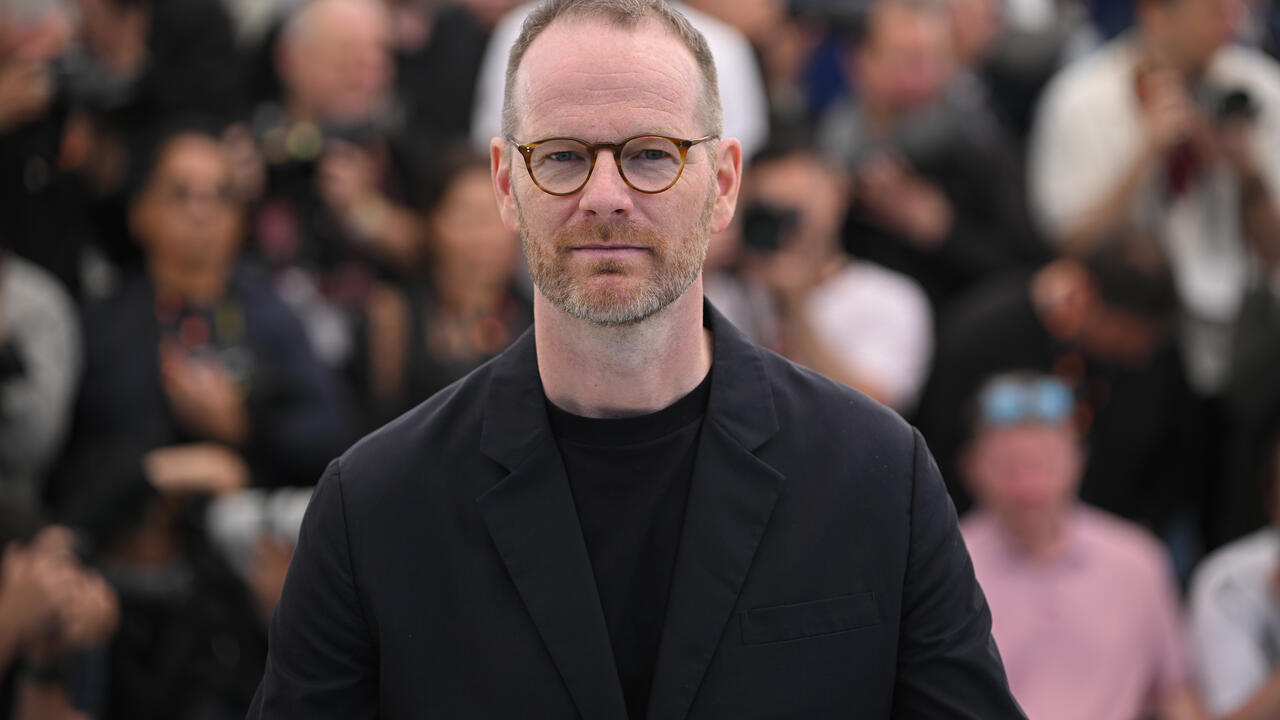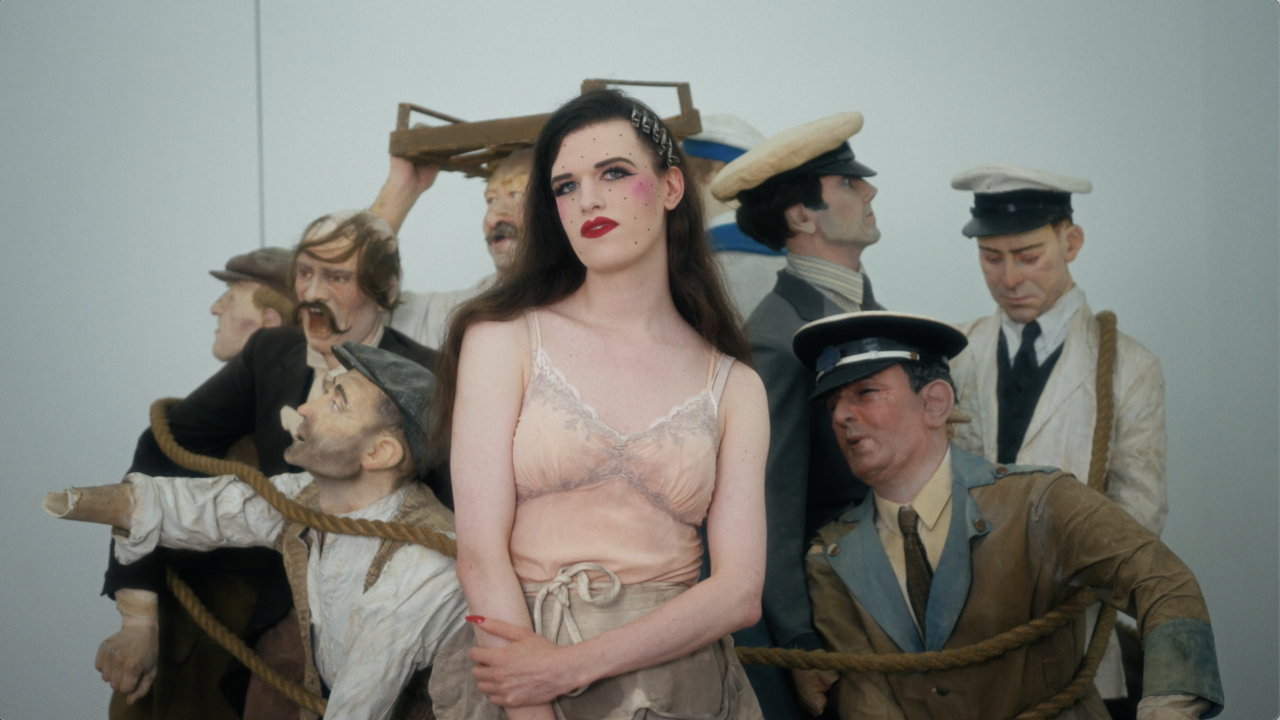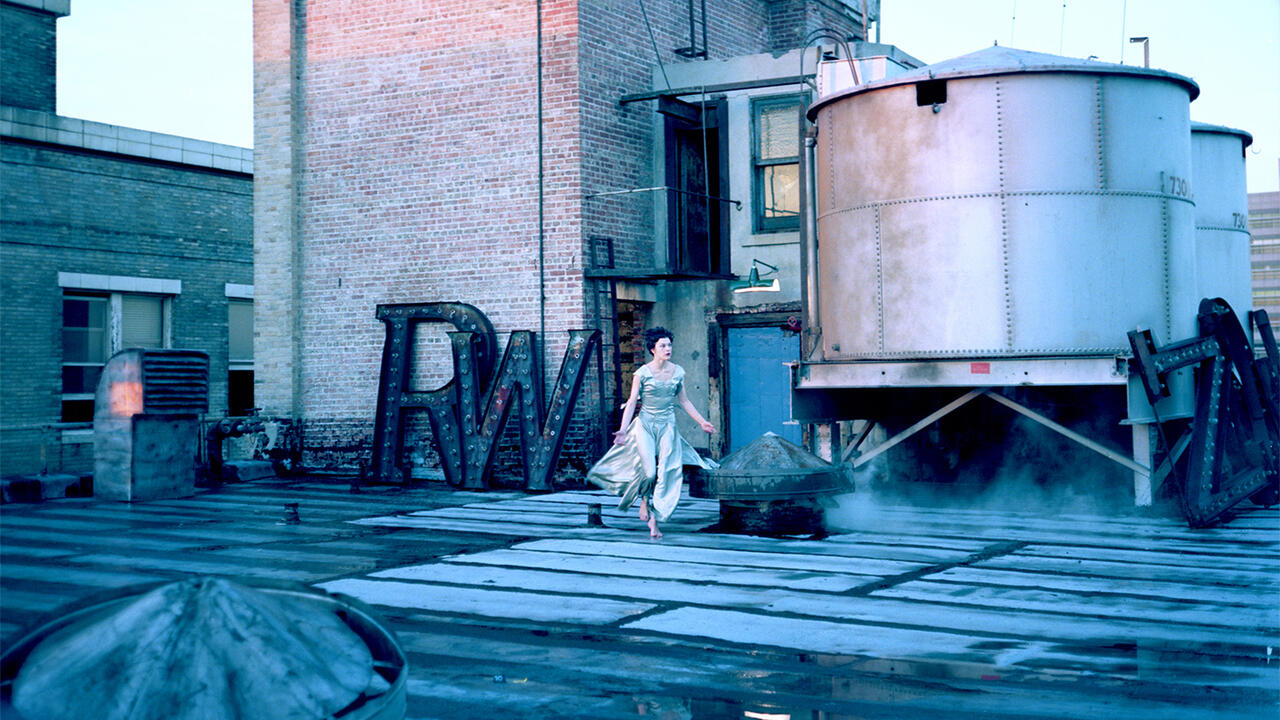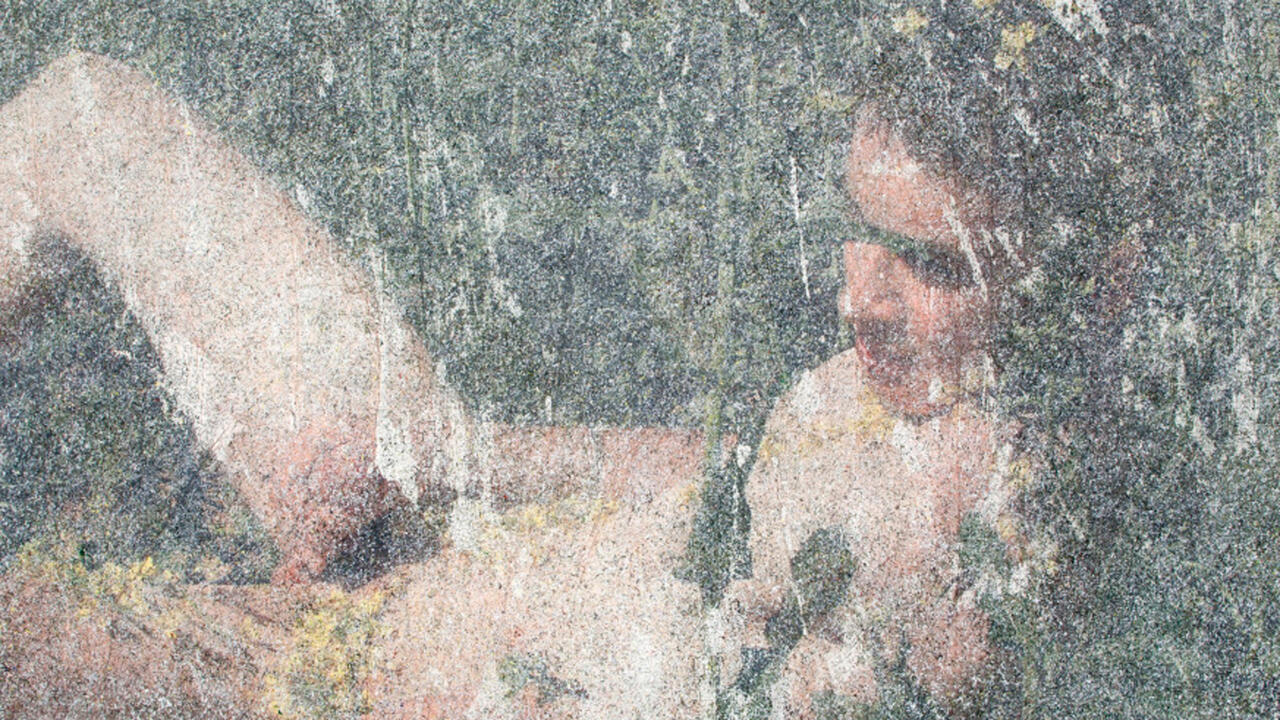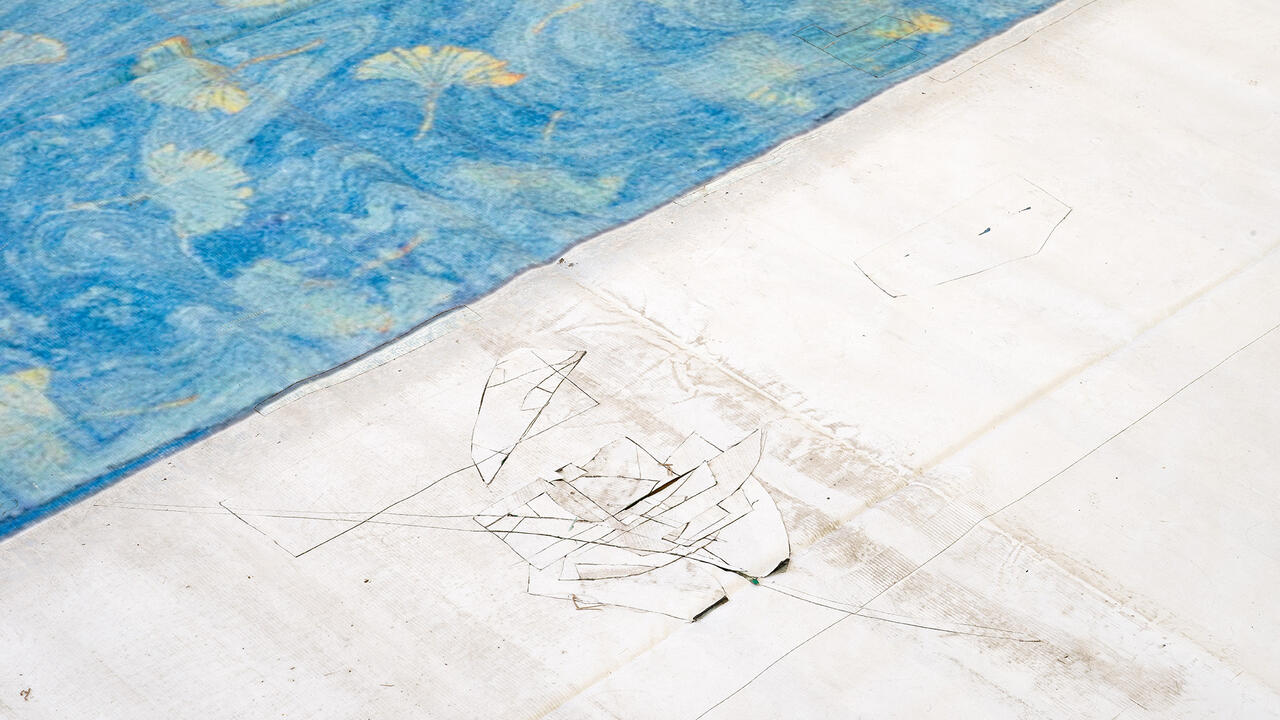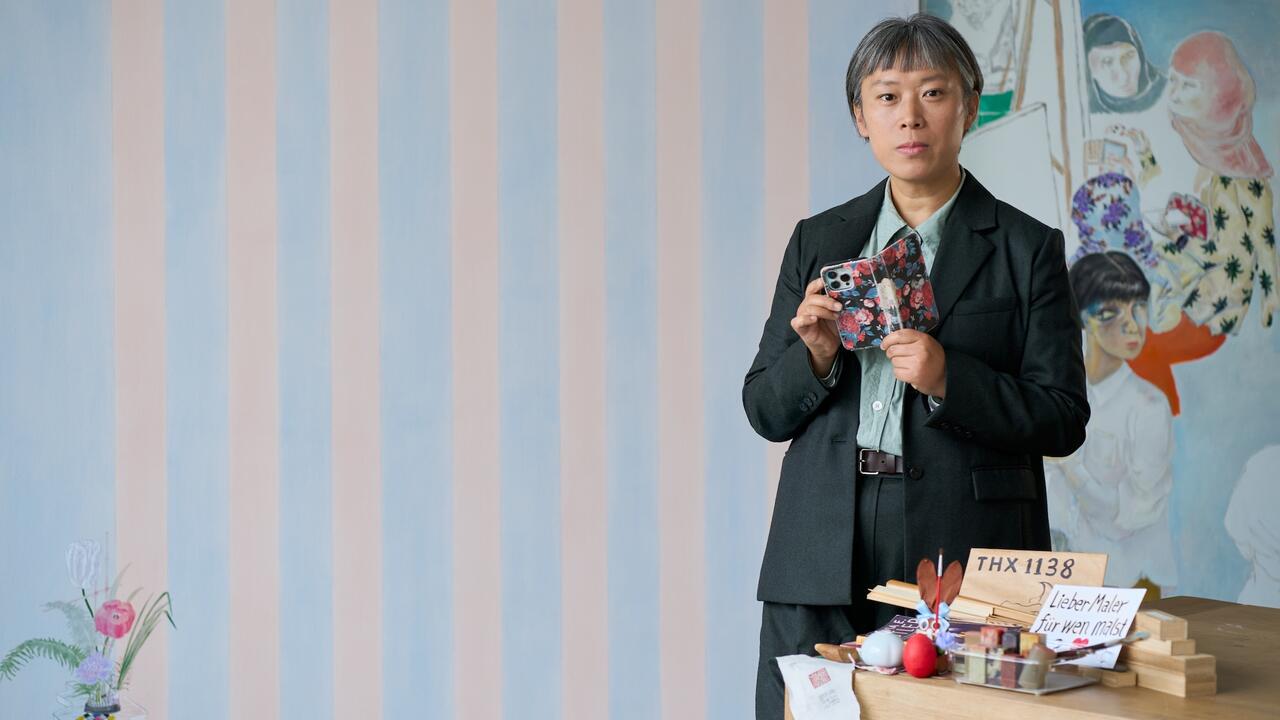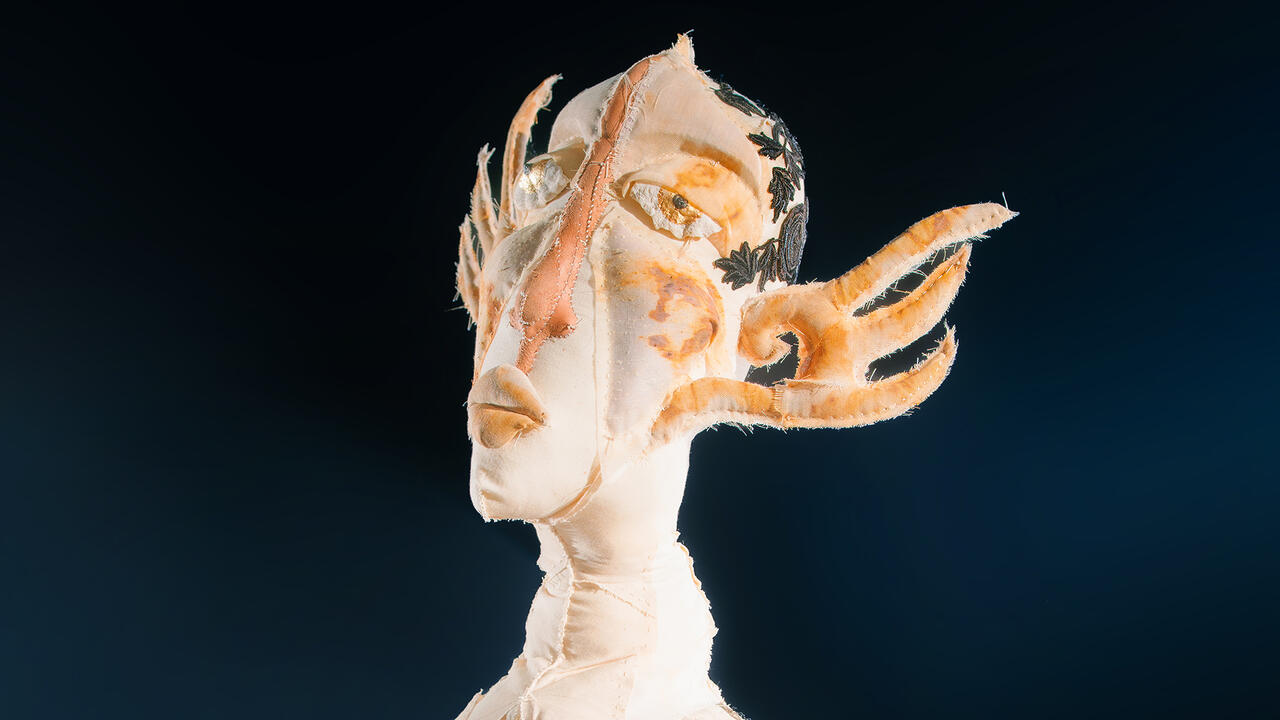Kerry Tribe
Collective memory and amnesia; mapping cities and family life
Collective memory and amnesia; mapping cities and family life

‘We do not remember’, says Chris Marker’s narrator in Sans soleil (Sunless, 1983), ‘we write memory much as history is rewritten’. At the level of the individual, though, memory is history, underwritten by divergences in perception and by the fragile wirings of consciousness. This sphere of relative truth has been Kerry Tribe’s heartland since The Audition Tapes (1998), wherein 15 actors play a grandfather, a mother, and a pair of artist siblings in ‘a video project on family history and memory’. Between their conflicting testimonies, familial trauma flickers, ungraspable: the grandfather’s memory is disintegrating and he only remembers good times, and ‘what Mom and Virginia experienced as abuse, he and Grandma may have just experienced as parenting’. Layers of exposed artifice – actors coached onscreen, different performers’ takes on the same character, false starts – reinforce an impression of imperfect narrative conveyance. The only certainty in The Audition Tapes, played against a background of high emotional stakes, is the abyssal and paradoxical one that no certainty exists.
Doubt, Tribe would go on to demonstrate, can dissolve a city. For her 2002 book North is West/South is East: 32 Maps of Los Angeles, she asked strangers at Los Angeles International Airport to draw thumbnail memory-maps of LA: the results, ranging from a neat grid of roads by ‘Richard’ to an empty obelisk by ‘Krista’, are as individual and experientially skewed as Saul Steinberg’s famous 1976 map of the insignificant world as seen from domineering Manhattan. That’s the reality inside those travellers’ heads, you feel, its individuality redoubled in confrontation with others. The same year’s two-screen film Here & Elsewhere further considers the hazy intersection between consciousness and exteriority, represented and real, via a dialogue between film theorist Peter Wollen and his prodigious young daughter, Audrey – in which he asks her questions adapted from those posed to schoolchildren in Jean-Luc Godard and Anne-Marie Miéville’s 1978 television documentary, France/tour/détour/deux/enfants (France/tour/detour/two/children). Are our bodies our selves, if our bodies are constantly changing? Does memory transpire in the present or in the past? Does a photograph tell you that something has actually happened? The ten-year-old says yes.

Given this emphatic shift towards the dominion of the lens, it’s notable that Here & Elsewhere was shot in Los Angeles; Hollywood has long been an arbiter of cultural memory. Tribe, however, appears more interested in how film might serve a countermanding conception of unknowing and unravelling. Near Miss (2005), three staged, near-identical takes of a car ploughing off a road in a whiteout storm, engenders snowballing uncertainty about distinctions between the versions. (A necessarily one-sided reconstruction of an undocumented incident in the artist’s own life a decade ago, it is exhibited alongside contradictory texts by members of the production team regarding what actually happens onscreen.) This, additionally, is part of a trilogy along with the film Northern Lights (Cambridge) (2005) – wherein sashaying coloured lights resembling the aurora borealis, their otherworldliness reinforced by eerie music played on an archaic synthesizer called a Lyricon, are actually produced by an Earl Reiback light-art work owned by Tribe’s parents – and the connected investigation into collective phenomenology, Episode (2006).
Filmed in Berlin, Episode mimics a televised studio talk show, featuring an unscripted conversation between Tribe and two friends, Jade and Jolon, who as teenagers in 1991 had witnessed something and never talked about it since. At the start of the exchange, it seems they’d all seen the Northern Lights while driving together in Idaho; by the end it seems possible that, shortly after hearing Jade confess that her parents believed they’d once been abducted by aliens, they had seen a UFO. Convincingly, not only does the early story fall apart and this new one attain some disturbing plausibility but, shortly after, the revised narrative is in turn undermined by the idea that Jade’s left-field confession might have precipitated a collective hallucination.
In Episode, the moderator notes Berlin’s aptness as a site for considering memory and forgetting on a large, historical scale. It’s tempting to read Tribe’s analytical yet flexible practice as an accumulating metaphor for our distracted moment, and works such as her 2002–3 public project in Los Angeles, a sign at the intersection of Highland Avenue and Sunset Boulevard reading ‘Cultural Amnesia’, encourage such a take. But its deeper tug comes from her articulation, via extreme cases and technological invention, of how radically reality can be edited in the cortical arena. H.M. (2009), Tribe’s most ambitious and finest achievement to date, is a documentary – again using actors – about the life of H.M., a man who since enduring, aged 27, a ‘frankly experimental operation’ on his brain for severe epilepsy, cannot make new episodic memories: his recall stops at 1953. H.M. has no idea how old he is, and can’t recognize the scientist who’s worked with him since 1962. Tribe’s film, beckoning attention to its construction just as The Audition Tapes did, incorporates text, animation and photographs of famous people H.M. can’t recognize. Sometimes we don’t recognize them either. A greater anxiety, though, arises from Tribe running the 16mm film through two side-by-side projectors, so that footage appears on one screen 20 seconds after the other. That’s the length of memory H.M. has, and often the film doesn’t look the same twice. The first viewing is half-gone, warping in the dark already; and it feels like H.M. suffers, to an extreme degree, from something contained in us all.









